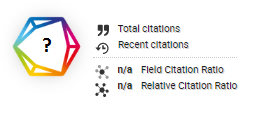PEER ATTACHMENT DENGAN SELF-REGULATED LEARNING BAGI MAHASISWA UNIVERSITAS KATOLIK WIDYA MANDIRA KUPANG
DOI:
https://doi.org/10.46984/sebatik.v27i1.2242Keywords:
Peer Attachment, Self-Regulated Learning, Mahasiswa, Prodi Bimbingan dan Konseling, PendidikanAbstract
Penelitian ini bertujuan untuk mengetahui hubungan antara peer attachment dengan self-regulated learning pada mahasiswa semester satu Program Studi Bimbingan dan Konseling Universitas Katolik Widya Mandira Kupang. Penelitian ini juga menyelidiki korelasi antara kesadaran peer attachment dan self-regulated learning. Subyek dalam penelitian ini adalah seluruh mahasiswa semester satu yang berjumlah 81 orang. Pengambilan sampel melalui teknik purposive sampling. Pengumpulan data menggunakan 23 item pada skala peer attachment dengan nilai koefisien Cronbach α sebesar 0,854 dan 23 item pada skala self-regulated learning dengan nilai koefisien Cronbach α sebesar 0,860. Hasil penelitian ini menunjukkan bahwa sebagian besar siswa memiliki tingkat peer attachment yang sedang (65,43%) dan self-regulated learning sedang (61,72%). Selain itu, data menunjukkan bahwa tidak ada korelasi antara peer attachment dengan self-regulated learning karena nilai signifikansi p = 0,929 (p>0,05), yang artinya tidak ada hubungan antara kelekatan teman sebaya dengan self-regulated-learning.
References
Gay C. Armsden, M. T. G. (1987). The inventory of parent and peer attachment: individual differences and their relationship to psychological well-being in adolescence. Journal of Youth and Adolescence, 16(5), 427–428.
Handayani, S., & Sholikhah, N. (2021). Pengaruh Antara Self Efficacy Dan Self Regulated Learning Terhadap Prestasi Belajar Mahasiswa Selama Pembelajaran Daring. Edukatif : Jurnal Ilmu Pendidikan, 3(4), 1373–1382. https://edukatif.org/index.php/edukatif/article/view/553
Kapliani, D. & Ratna, S. R. (2008). Hubungan Antara Persepsi Mahasiswa Terhadap Dukungan Sosial Dosen Dengan Regulasi Diri dalam Belajar. Naskah Publikasi Program Studi Psikologi Fakultas Psikologi dan Ilmu Sosial Budaya Universitas Islam Indonesia Yogyakarta. http://psychology.uii.ac.id/images/stories/jadwal_k uliah/naskah-publikasi-04320229.
Laible, D. J., Carlo, G., & Raffaelli, M. (2000). The differential relations of parent and peer attachment to adolescent adjustment. Journal of Youth and adolescence, 29(1), 45-59.
Montalvo, F.T. & Torres, M.C.G. 2004. Self Regulated Learning: Current and Future Direction. Electronic Journal of Research in Educational Psychology, 2(1): 1-34.
Nur, M. D. M. (2017). Pengaruh Strategi Pembelajaran Fisika Berbasis Website Terhadap Hasil Belajar pada Siswa yang Memiliki Self regulated Learning (SRL) yang Berbeda. Edcomtech: Jurnal Kajian Teknologi Pendidikan, 2(1), 65-76.
Neufeld , G. (2004). Hold on to your kids: why parents matter (1st ed.). Toronto: A. A. Knopf Canada books.
Noviana, S., & Sakti, H. (2015). Hubungan antara peer attachment dengan penerimaan diri pada siswa-siswi akselerasi. Jurnal Empati, 4(2), 114-120.
Oktariani, O. (2019). Hubungan Self Efficacy Dan Dukungan Sosial Teman Sebaya Dengan Self Regulated Learning Pada Mahasiswa Universitas Potensi Utama Medan. Jurnal Psikologi Kognisi, 2(2), 98-112.
Ormrod, J. E. (2008). Psikologi pendidikan edisi keenam. Jakarta: Penerbit Erlangga.
Papalia, D. E. Olds & Feldman (2013). Human Development: Perkembangan manusia, Jilid 1. Jakarta: Salemba Humanika.
Pintrich, P. R. (1995). Understanding Self-Regulated Learning. New Direction for Teaching and Learning, 65, 3–12. https://doi.org/ 10.1002/tl.37219956304.
Pintrich, P. R. (2002). The role of goal organization in self regulated learning. In M. Boekarts, P. R. Pintrich, & M. Zaidner (Eds). Handbook of self regulation (pp. 451503). San Diego: Academic Press.
Räisänen, M., Postareff, L., Mattsson, M., & LindblomYlänne, S. (2020). Study-related exhaustion: First year students’ use of self-regulation of learning and peer learning and perceived value of peer support. Active Learning in Higher Education, 21(3), 173– 188. https://doi.org/10.1177/1469787418798517.
Rachmaningtyas, A. T., & Khoirunnisa, R. N. (2022). Hubungan Antara Dukungan Sosial Teman Sebaya Dan Self-Regulated Learning Pada Mahasiswa Tahun Pertama Di Masa Pandemi Covid-19. Character: Jurnal Penelitian Psikologi, 9(1), 34-45.
San, Y. L., Roslan, S. B., & Sabouripour, F. (2016). Relationship between self-regulated learning and academic procrastination. American Journal of Applied Sciences, 13(4), 459-466.
Sumia, D., Sandayanti, V., & Detty, A. U. (2020). Pengaruh teman sebaya dan regulasi diri dalam belajar pada mahasiswa. Jurnal Psikologi Malahayati, 2(2), 10–17.
Www.liputan6.com. Skor Terbaru Pisa Bidang Membaca Sains dan Matematika. Diakses 2 mei 2021
Www.kumparan.com Pendidikan Indonesia Tersengal Mengejar Negara Tetangga di ASEAN. Diakses 2 Mei 2021.
Zain, N., & Wahyuni, S. S. (2015). Self-regulated learning dan prokrastinasi: Studi pada siswa SMK Panca Karya Tangerang. Jurnal Pendidikan Ekonomi dan Bisnis, 3(2).
Zimmerman, B. J. (1989). A social cognitive view of self-regulated academic learning. Journal of educational psychology, 81(3), 329.
Zimmerman, B. J. (2002). Becoming a self-regulated learner: An overview. Theory Into Practice, 41(2), 64–70.
Zimmerman (2008). Investigating Self-Regulation and Motivation: Historical Background, Methodological Developments, and Future Prospects. American Educational Research Journal.
Zimmerman, B. J. (2014). A social cognitive view of self-regulated learning about health. Health Education & Behavior, 41(5), 485-491.
Downloads
Published
How to Cite
Issue
Section
License
Authors retain all their rights to the published works, such as (but not limited to) the following rights; Copyright and other proprietary rights relating to the article, such as patent rights, The right to use the substance of the article in own future works, including lectures and books, The right to reproduce the article for own purposes, The right to self-archive the article








